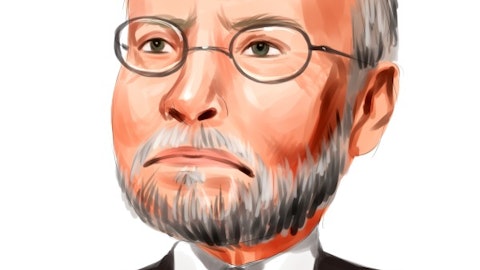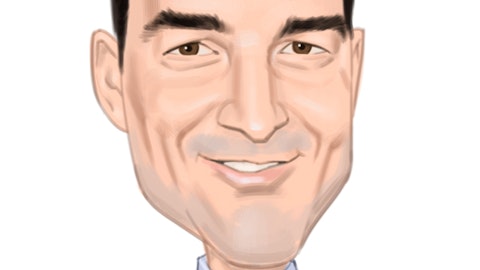EBay founder rebuts Icahn, defends plan to retain PayPal (TulsaWorld)
eBay Inc (NASDAQ:EBAY)‘s founder Pierre Omidyar on Thursday said billionaire investor Carl Icahn‘s claims that the company is not operating in the best manner for shareholders aren’t merited. In three letters to shareholders over three days, Icahn has urged the company to split off its PayPal unit, which is the fastest growing unit of the e-commerce company and accounts for about 40 percent of its revenue. Icahn has also leveled attacks at two directors and company CEO John Donahoe. In his latest letter, Icahn said responses to his letters from “eBay’s public relations machines” aren’t sticking to the facts.
Marc Faber: Buy Vietnam, hold gold (MoneyWeek)
Hong Kong-based Marc Faber, who famously foresaw the commodities boom of the last decade and the Asian crisis of the late 1990s, has long touted Asia’s potential. He remained bullish on the region at the annual roundtable discussion of investment experts hosted by Barron’s. “I have seen Macau go from a sleepy village to a gambling centre seven times the size of Las Vegas,” says Faber. “Chinese tourism in Thailand grew by 90% last year.” Tourism is one reason he’s keen on Vietnam.
Could this be the key to success on Wall Street? Hedge fund billionaire Ray Dalio thinks so (Yahoo)
A string of recent deaths within the banking world have brought global attention to the stressful conditions that financiers work in and around. Large banks have attempted to respond to the problem by limiting working hours on the weekends but the effectiveness and ability to enforce those rules have come into question. Studies have found that stockbrokers are three times more likely to suffer from depression than the general adult population. Excess stress is a leading cause of heart and brain disease. So what’s a banker to do? Some prominent investors have taken to transcendental meditation (TM). Some teach the relaxation method to their entire company. The technique requires 20 minutes of silent meditation two times a day and is popular with folks like Bridgewater’s Ray Dalio (who offers TM to his 400 employees), Bill Gross, Dan Loeb, Nigol Koulajian (Quest Partners) and Kevin Kimberlin (Spencer Trask & Co).
“Alternative” or “Hedged” Mutual Funds: What Are They, How Do They Work, and Should You Invest? (Forbes)
Bear markets are devastating, bull markets a beautiful sight to behold, but nothing gets Wall Street more excited than the dawn of a new financial product that brings with it lucrative client flows. Thus despite the weather, the mood in luncheon conversations during my trip to New York last week was downright giddy. The excitement is over a new frontier for the hedge fund industry: mutual funds. Over the past few years, a combination of industry shifts and regulatory changes has led to a number of alternative investment firms entering the mutual fund market. If you haven’t yet come across “hedged mutual funds” or “alternative mutual funds”, chances are you probably will soon. This newer breed of mutual fund purports to deliver hedge fund- like exposure, but is available in a mutual fund structure.
Winton Capital CEO Resigns (WSJ)
Tony Fenner- Leitão, chief executive of Winton Capital Group, Europe’s fourth-largest hedge fund by assets under management, has resigned and will be replaced in the role by the firm’s founder and executive chairman David Harding, the company said Friday. Mr. Fenner -Leitão, a former executive director at Goldman Sachs Group, Inc. (NYSE:GS) +0.22% joined Winton Capital in 2008, becoming deputy to Anthony Daniell in 2012 before succeeding him as chief executive in early January last year. He has stepped down as chief executive of the company, which manages roughly $25 billion in assets, according to a statement, which added that Mr. Harding, who founded the firm in February 1997, would assume Mr. Fenner-Leitão’s duties.
Riverbed rejects Elliott’s raised takeover offer (HedgeWorld)
Network gear maker Riverbed Technology, Inc. (NASDAQ:RVBD) rejected Elliott Management’s raised bid of $3.36 billion, saying the hedge fund’s offer undervalued the company. Elliott on Tuesday [Feb. 25] increased its offer by $2 per share to $21 per share and said it could raise the bid if allowed access to Riverbed’s books for due diligence. Riverbed said on Friday its board unanimously determined not to pursue Elliott’s offer, which was not in the best interests of shareholders. “Riverbed board has again failed shareholders … (the) board has clearly chosen entrenchment over shareholder value,” Elliott, which holds a 10.5 percent stake in Riverbed, said in response.
Recommended Reading:
GLG Partners Boosts Exposure to Yongye International (YONG)





